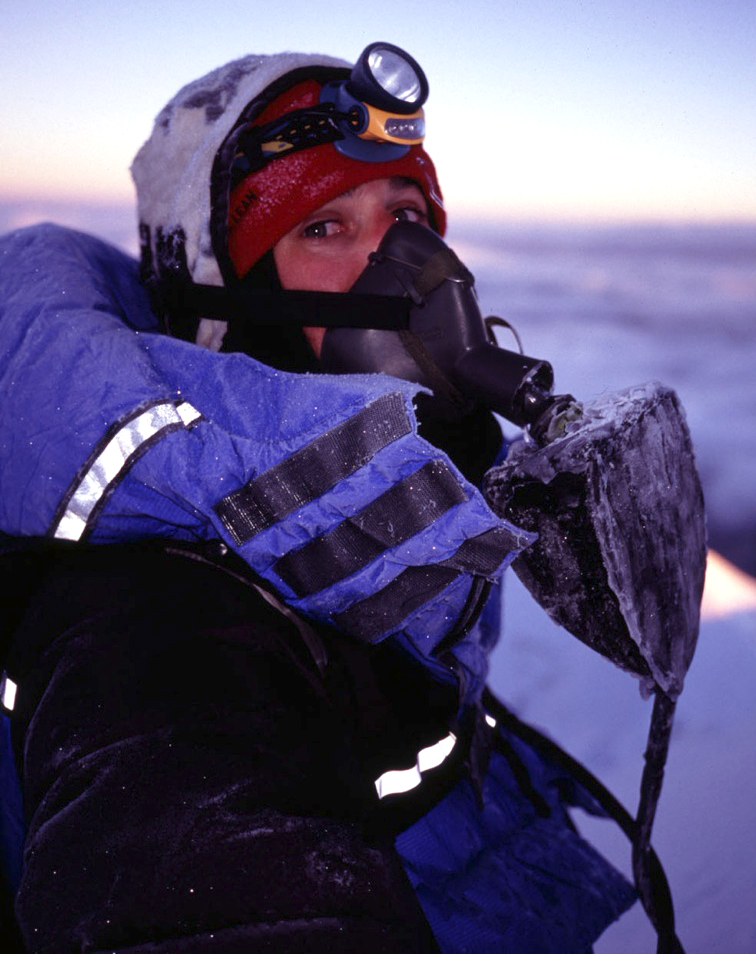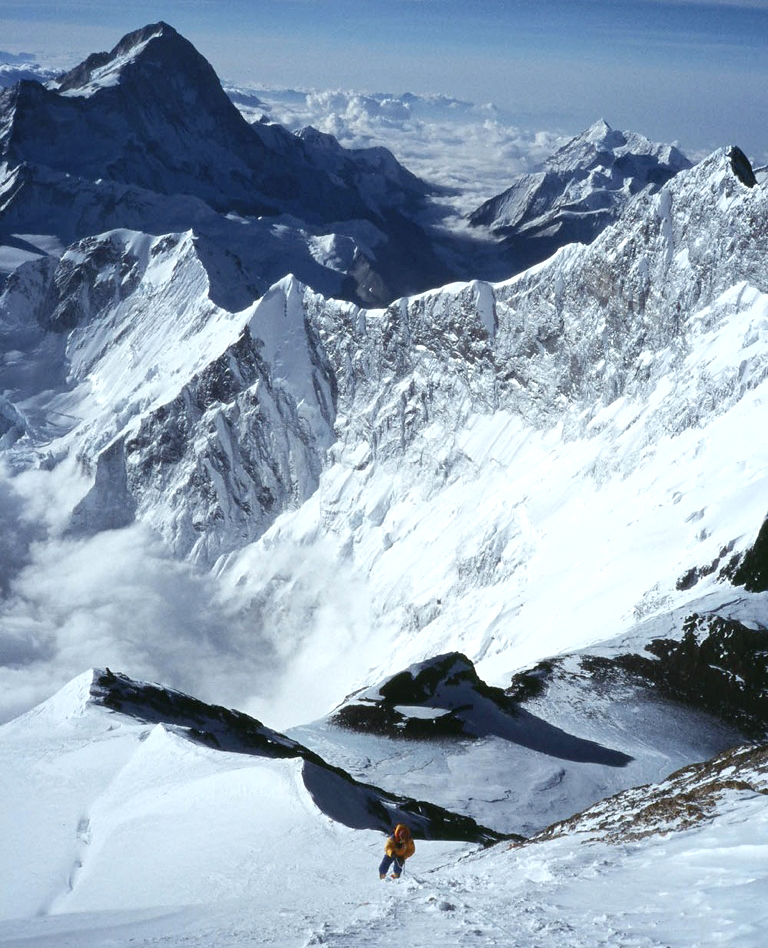
Courtesy of LINDLEY ZERBE
UCLA dental student Lindley Zerbe climbed Mount Everest with a team of students and staff from the National University of Singapore in 2005.
Lindley Zerbe had just flown overseas to start his career as a research scientist at the National University of Singapore after graduating from Stanford. Then he got an email that would permanently change his career path.
The university, it said, wanted to send a team of students and staff to the summit of Mount Everest in celebration of its centennial.
“I couldn’t believe what I was reading,” Zerbe said. “I knew I had to do it.”
Now a fourth-year student at the UCLA School of Dentistry, Zerbe trained for more than two and a half years in preparation for the expedition in 2005. It was his decision to act as the team’s medic, however, that altered his fate. The excitement of applying preventative medicine techniques and helping others spurred Zerbe to pursue dentistry upon his return to the United States, he said.
One team member was needed to learn to treat altitude sickness and common injuries on the climb, and Zerbe volunteered.
On the team’s many treks, Zerbe used leftover supplies to treat patients at local clinics and hikers from other groups. On a training hike in Pakistan, for example, he re-cemented a broken crown for a Polish hiker with extreme mouth pain.
Zerbe recounted his journey to the summit in a presentation at the UCLA School of Dentistry Wednesday, after encouragement from Carol Bibb, associate dean at the UCLA School of Dentistry.
During the application process, Bibb noticed his climbing experience and was impressed by it, she said.
Over two and a half years, the National University of Singapore whittled a list of 100 candidates down to the five who would tackle Mount Everest.
Overnight boot camp, psychological tests and training in the mountains of New Zealand left Zerbe, a Malaysian and three Singaporeans the victors.
The climb took the team three months to complete. In the course of the climb, some experiences were life-threatening, Zerbe said.
Zerbe and the Sherpa traveling with him were completing an acclimatization hike and heading toward base camp. Zerbe heard what sounded like a jet engine behind him and turned to find a 3-foot-wide boulder rocketing over his footsteps. He ducked behind a ledge, forever thankful his team had opted to leave their iPods at home in favor of open ears, he said.
“That was a moment of sheer terror,” Zerbe said. “The small decision not to wear headphones saved my life.”
Aside from learning to appreciate his life, Zerbe said he also learned to appreciate people’s diversity ““ an outlook that he hopes to bring into his future dental practice.
His team faced tensions due to cultural differences at first. Zerbe said they would often attribute his opinions to the fact that he was an American without considering his personal point of view.
But a series of talks and a journey up the world’s tallest mountain soon dissolved a network of conflicts into strong cross-cultural friendships, he said.
At UCLA, Zerbe has contributed much as a leader, said Ronald Mito, associate dean at the dentistry school.
He acted as a representative for his class to the California Dental Association, mentored younger students and honed his leadership skills in the Dean’s Leadership Institute.
“Lindley brings a certain maturity to the dental school family,” Mito said. “He has a sense of what it takes to accomplish something the average person would consider impossible.”
